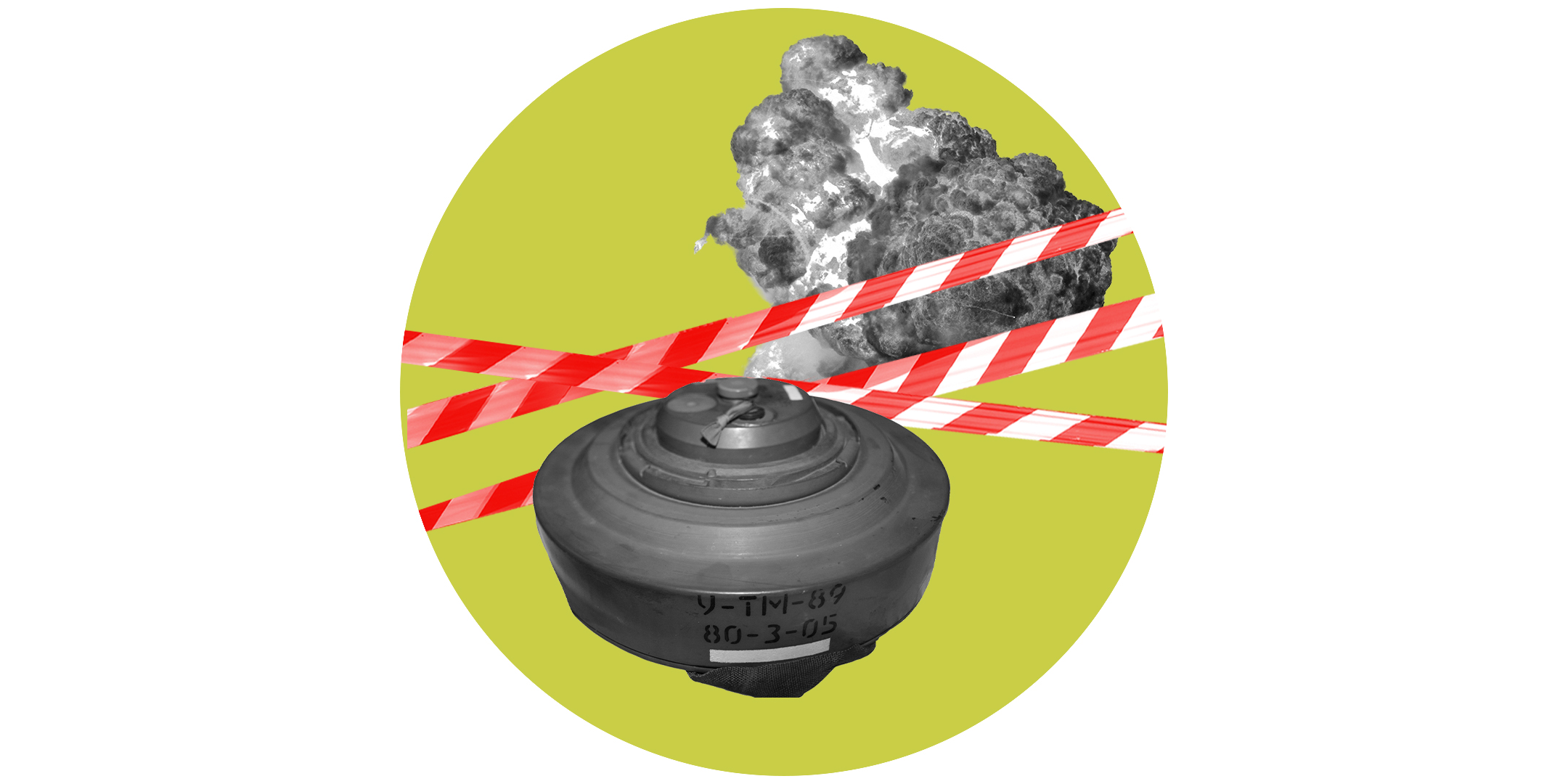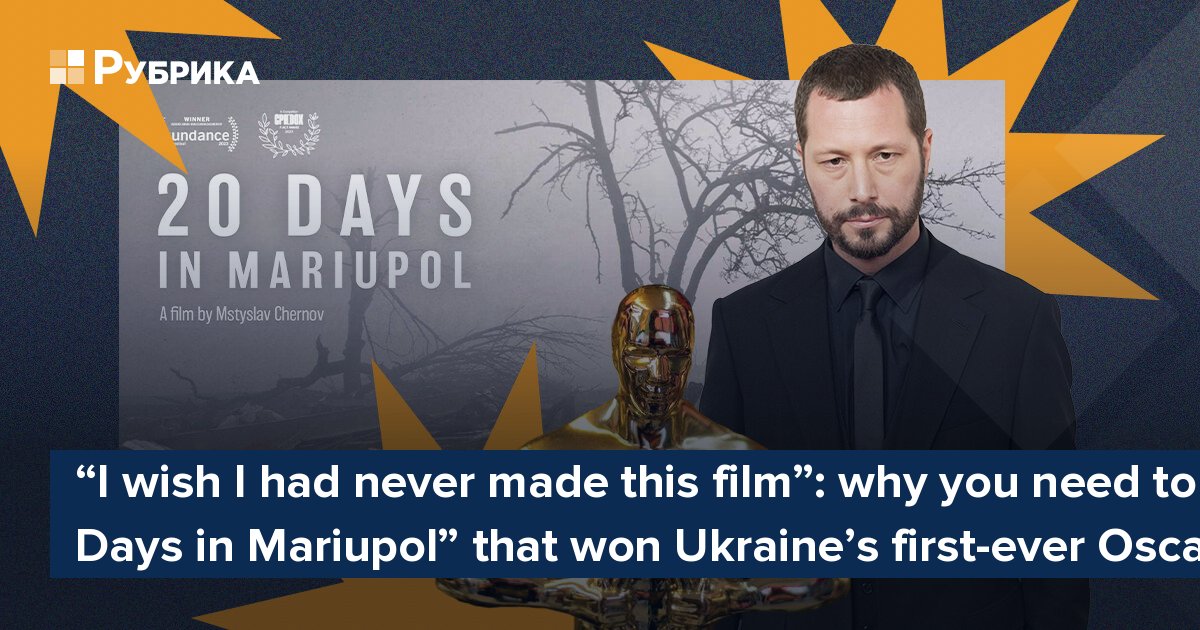
The recent Oscars ceremony marked a historic milestone for the Ukrainian film industry with the triumph of "20 Days in Mariupol," the country's first documentary to win the prestigious award. Directed by Mstyslav Chernov, a recipient of multiple accolades, including a BAFTA and a Directors Guild of America Award, the film's journey resonated deeply with the audience. In a poignant acceptance speech, Chernov, visibly moved, couldn't conceal the emotional burden of the film's narrative:
"Probably I will be the first director on this stage who will say I wish I never made this film. I wish to be able to exchange this to Russia never attacking Ukraine, never occupying our cities. I wish to give all the recognition to Russia not killing tens of thousands of my fellow Ukrainians."
In this exploration, Rubryka will unravel the global sensation surrounding this documentary, which has evoked profound emotions and garnered widespread acclaim. The article will delve into the film's genesis, introduce its creators, provide details on where audiences can watch it, and underscore the compelling reasons that make it a must-see for everyone.
Filming amidst the fires: Russia's siege of Mariupol
Twenty days — that's how long Ukrainian military journalist Mstyslav Chernov has been in Mariupol since the start of Russia's full-scale invasion of the city, which has become synonymous with countless Russian war crimes. He, photographer Yevgeniy Maloletka, and producer Vasilisa Stepanenko arrived in Mariupol on February 24, 2022, just an hour before the invasion began.
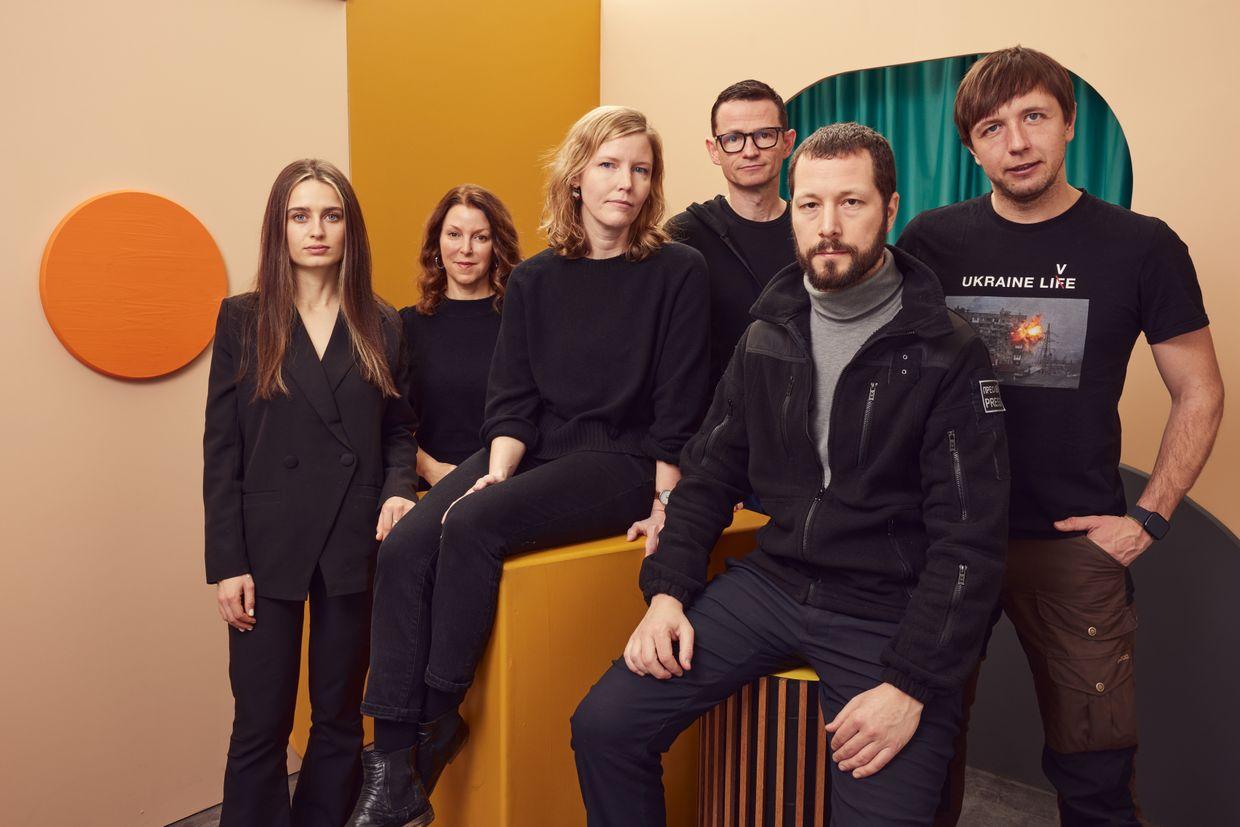
Vasilisa Stepanenko, Raney Aronson-Rath, Michelle Mizner, Derl McCrudden, Mstyslav Chernov, and Evgeniy Maloletka of "20 Days in Mariupol", posing for a portrait at the Getty Images Portrait Studio at Stacy's Roots to Rise Market on January 23, 2023, in Park City, Utah. Photo: Emily Assiran for Stacy's Pita Chips as part of the Contour by Getty Images series.
The film was created in 2023 in cooperation with the Associated Press and Frontline. The documentary "20 Days in Mariupol" depicts the Russian attack on the city during February-March 2022. It follows Mariupol's struggle in the first few weeks of the invasion, including shellings, civilian casualties, and the bombing of a maternity hospital. The film documents the high human cost in a city under siege by Russian forces.
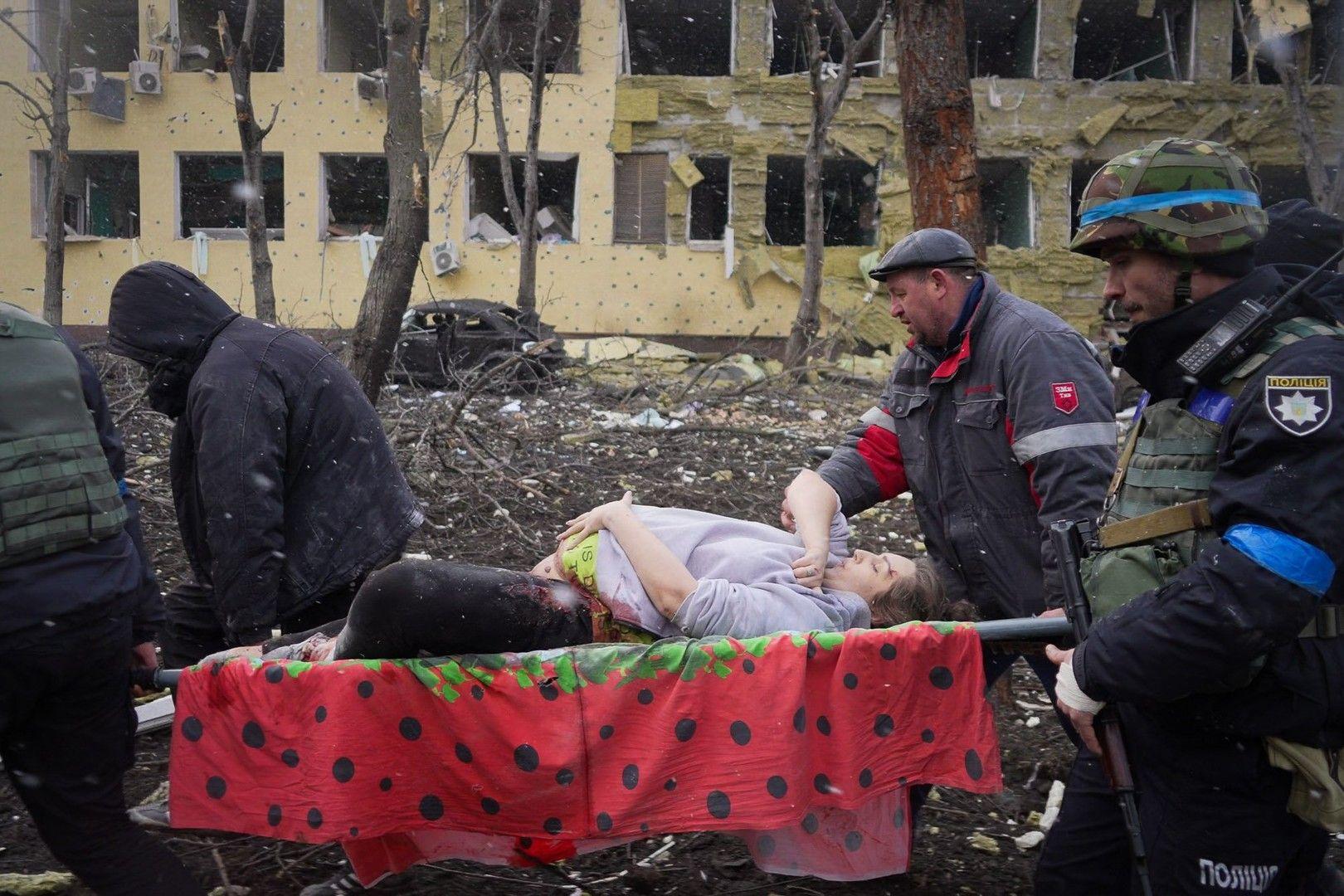
A scene from "20 Days in Mariupol": Russia's bombing of a maternity hospital
However, it goes beyond just documenting these events. It also offers a deeply personal perspective on the experiences of war reporters and capturing history. The film's creators risked their lives to carry out their professional duties.
Chernov, along with Maloletka and Stepanenko, constantly moved around the city, capturing various scenes: bombings, the efforts of doctors and utility workers, the tragic deaths of children, the bravery of the military and the police, and the struggle to resist occupation. However, the film focuses on the people and their personal stories. Chernov compassionately interviewed the locals, asking for their thoughts and names. Although many hesitated to share in the early days, their attitude towards the film crew eventually shifted drastically. This is evident in footage where a doctor boldly invited the journalists into the operating room, declaring, "This is how they attack civilians." In another instance, a policeman requested to record a message and, amidst explosions, aided the journalists in finding a connection to transmit the footage, so the world could witness the atrocities unfolding.
According to BBC, Chernov and Maloletka managed to send photos and videos while taking cover under the stairs near the destroyed grocery store — the sole location in Mariupol where communication was possible. That way, they were able to transfer 10% of the footage. On March 15, the AP team also successfully evacuated the remaining material, including 30 hours of video filmed by Mstyslav Chernov, from Mariupol through the humanitarian corridor. They were the only journalists left in the city at that point.
Exploring the social impact of the film "20 Days in Mariupol"
The documentary's director believes the film holds great value for various reasons. Firstly, the director claims that the film provides a therapeutic effect, allowing the Ukrainian audience to collectively process traumatic events and better understand their impact. Additionally, the director highlights that the film offers hope despite its emotionally challenging content. The film showcases individuals' suffering and depicts the inspiring actions of those supporting them, such as doctors, volunteers, and citizens. Through these portrayals, Chernov aims to convey a message of resilience and determination, demonstrating that Ukrainians will not surrender and will continue to fight the war.
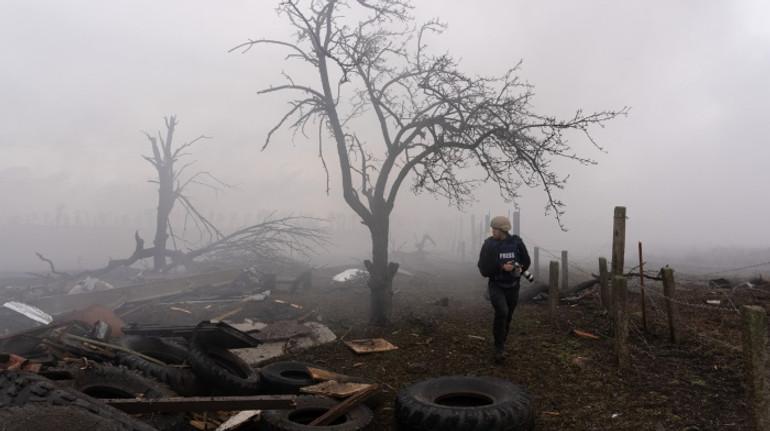
A scene from "20 Days in Mariupol"
Moreover, an essential aspect of the film is the availability of information and how the enemy expertly takes advantage of its absence. The filmmakers include footage of a destroyed maternity hospital, followed by the Russians claiming they do not harm civilians, which is all manipulative. The audacity of the invaders is astounding.
The primary objective of this documentary is to provide the audience with sufficient context, which is why "20 Days in Mariupol" was made. The aim is not only to showcase the events and remember them, but also to ensure that every detail and overall context is accurately portrayed, as stated by Chernov. Upon analyzing news coverage of the bombing of the maternity hospital in Mariupol, it is evident that both Russian and Ukrainian media outlets shared footage of the incident. However, the accompanying text and narrative were vastly different, revealing a battle for interpretation. This highlights the importance of providing context, as the more thorough it is, the more beneficial it is for the audience.
Even Ukrainian President Volodymyr Zelensky highlighted the significant impact of the documentary "20 Days in Mariupol" in countering Russian propaganda and expressed gratitude to its creators:
"I am grateful to the team behind this significant film for exposing Russian atrocities against our people to the entire world. This harrowing and fact-based account is critical for countering Russian lies, keeping Ukraine in the spotlight, and understanding that Ukraine must win this war and Russia must be held accountable."
Award-winning story: "20 Days in Mariupol" takes home top honors
"20 Days in Mariupol" has an impressive list of accolades, with over 20 awards and 40 nominations, including prestigious honors:
- Audience Prize at Sundance Film Festival (2023);
- F: ACT — Investigative Journalism nomination at CPH: DOX (2023);
- Standing Up category award at Cleveland International Film Festival (2023);
- Best Documentary Film of the Year at Cinema for Peace (2023);
- Best Director and Best Editing awards at Doc Edge (2023);
- Tim Hetherington Award at Sheffield DocFest (2023);
- Audience Award at IDFA (2023);
- Ranked among the top three documentaries of 2023 by Indiewire;
- Five Cinema Eye Awards nominations (2023);
- Main prize at Docudays UA (2023);
- Two nominations at Kinokolo National Award (2023);
- BAFTA award for Best Documentary (2024);
- Pulitzer Prize (2024);
- Shevchenko Prize (2024);
- The highest-grossing documentary in Ukraine (2023), collecting UAH 500,000 on the first weekend of release alone;
- Best Documentary award at Critics' Choice Documentary Awards (2023);
- Oscar for Best Documentary (2024).
As he accepted his well-deserved Oscar, Chernov delivered a profoundly stirring and impactful speech. Mstyslav expressed his honor at receiving the first-ever Oscar for Ukraine. The director of "20 Days in Mariupol" implored fans to take notice of the current situation in Ukraine, sharing that he regretted having to make a film about Russia's invasion of the country.
"I wish to be able to exchange this to Russia never attacking Ukraine, never occupying our cities. I wish to give all the recognition for Russia not killing tens of thousands of my fellow citizens," Chernov confessed. "I cannot change history. I cannot change the past. But we all together, you — some of the most talented people in the world — can make sure the history record is set straight, and the truth will prevail, and the people of Mariupol and those who have lost their lives will never be forgotten. Because cinema forms memories, and memories form history."
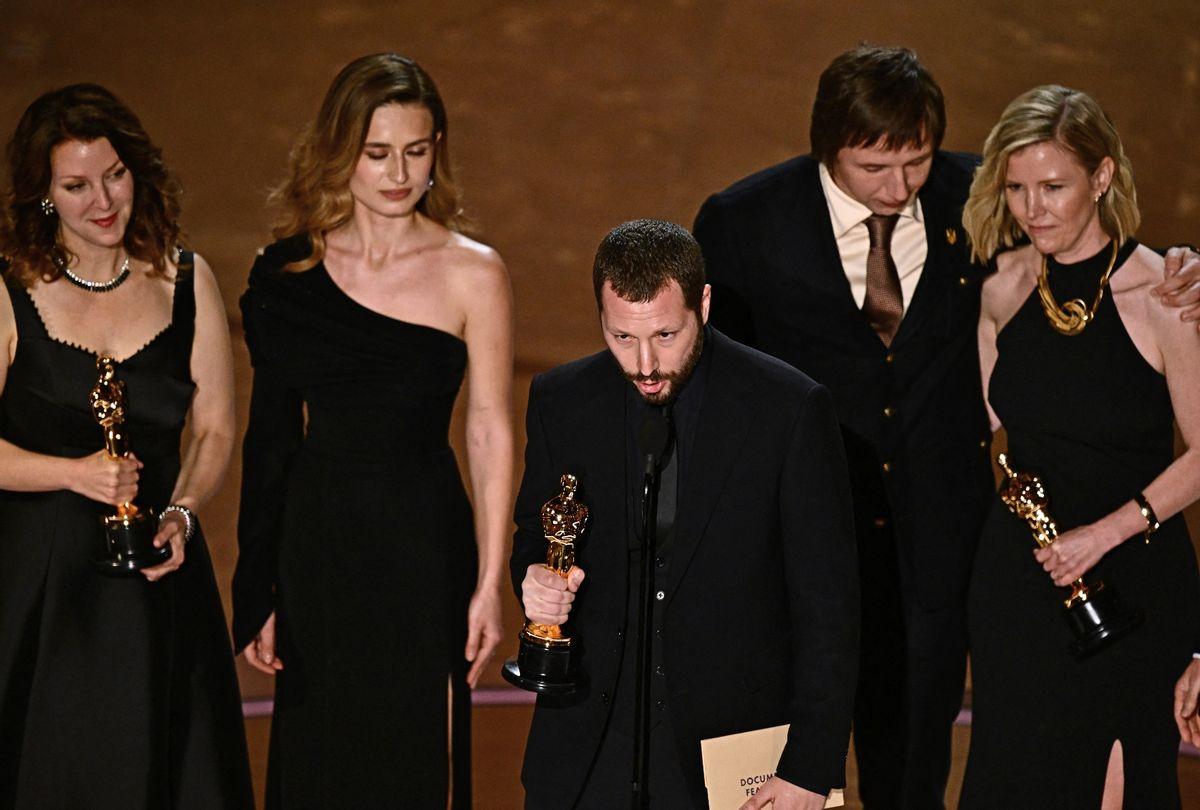
Photo: Patrick T. Fallon/AFP
Must-see documentary: find out where and why you can't miss "20 Days in Mariupol"
"20 Days in Mariupol" depicts the agony of a dying city, as described by Chernov, who compares it to the death of a person. It is hard to argue with this comparison, as the film showcases endless suffering, pain, hopelessness, torment, and despair.
The film offers a raw and honest portrayal of the war. Viewers witness the difficult and heartbreaking realities of communal workers collecting and burying the dead in mass graves, children dying on operating tables, and doctors working tirelessly to save lives. There is also a glimpse into the bravery of military and police forces defending the city, knowing there may be no escape.
The documentary also tells the story of three courageous journalists who risked their lives to expose the Russian crimes and genocide of the Ukrainian people.
For international viewers, this film is of great importance. It provides a window into the atrocities committed by Russians as they invaded Mariupol. It also serves as a reminder that other temporarily occupied Ukrainian cities are facing similar destruction every minute.
You can stream the documentary on Amazon, pbs.org/frontline, and the PBS Documentaries Prime Video Channel.
However, we want to give you a fair warning: this film is definitely painful to watch, but as the author says in a voiceover, "It should be painful to watch."



